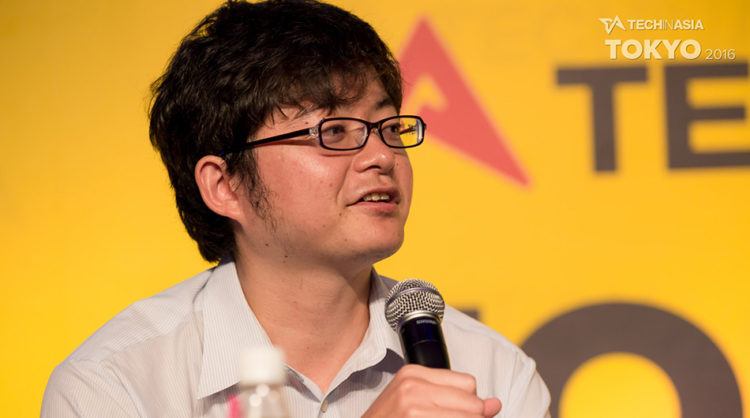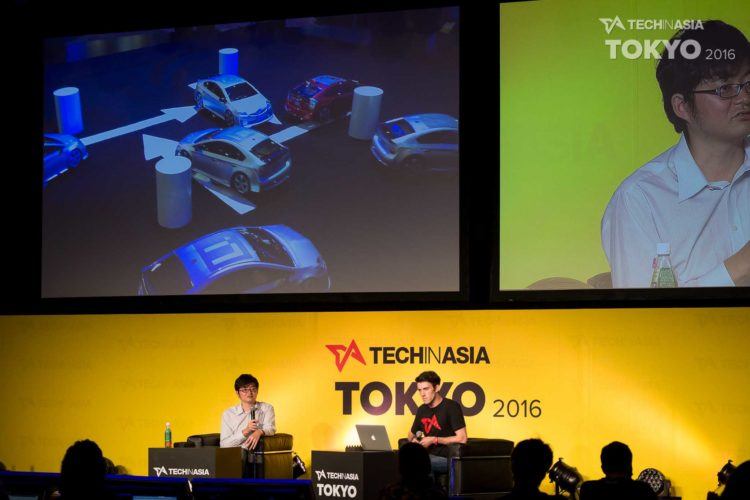
Founder and CEO of Preferred Networks Toru Nishikawa.
Toru Nishikawa wants to stay a step ahead of Google. Last week at Tech in Asia’s Tokyo conference, Toru spoke about leading the artificial intelligence (AI) revolution and where smart machines will take us.
His company Preferred Networks is one of Japan’s most innovative startups and was valued over US$325 million after its last funding from Toyota in December 2015. It’s focused on AI for devices and machines. The goal is to make machines smarter with neural networks and connect them in the smartest way with computer networks.
I thought if we could move full pace, then we would be able to become number one in the world.
“AI is an intelligence that continues to evolve by using the power of computers and networks,” Toru explains.
Unlike humans, by leveraging the power of the network and adding data lines, computers can send a potentially unlimited amount of data. We are in an era where computers can beat world champion chess and Go players, where cars have started driving people around, and where AI can learn to play new video games.
While Toru says the company culture is more like a research lab, the researchers are business oriented. The team works with leading companies such as Fanuc and Toyota in developing smart robots and autonomous cars. Preferred Networks technology was featured at the world famous consumer technology event CES earlier this year showcasing self-driving Priuses.
The six white cars in the video undergo deep learning and share sensor data with each other over the network. While the cars frequently crash in the beginning, after two hours of learning the vehicles can already drive a set course automatically. After only 12 hours of learning, the cars can make complex movements and adjust for the human driver in the red car who is purposefully interfering with the flow of traffic.
Toru and his team also recently came in second place for the Amazon Picking Challenge, a competition where robots have to move various items from a shelf into a crate. The goods on each shelf are scattered randomly and the robot must be able to adjust to different situations. Preferred’s robot is able to grab any item in 90 percent of cases after just eight hours of training.
This success rate is as high as a robot pre-programmed by a human according to Toru, meaning hours, perhaps even weeks or months, of labor can be achieved by just letting the robot move and learn. Toru is confident his team will win next year. A member of the first place team even joined Preferred Networks after the picking contest.
Model research
“I thought if we could move full pace, then we would be able to become number one in the world.”
Toru was originally against the idea of outside funding after a poor experience at a biomedical startup during his graduate school years, but reconsidered after the AI boom started. He better understood how outside capital could increase their speed and likelihood of success. While many research labs or startups get shafted working with large corporations in Japan – the big guys often take the intellectual property (IP) rights – Toru’s main concern is synergy with clients.
“If they take all the IP, we won’t be able to create the platform to make machines smart.”
Toru also isn’t worried about cash flow. They have raised roughly US$21 million and have contracts with major companies. “It’s not like we will increase from 50 people to 500 all of a sudden… we will just focus on getting excellent people.”

Toru explaining their self-driving car technology to yours truly at Tech in Asia Tokyo 2016.
It is important to have a strategy that continues to push AI forward after the novelty wears off. Toru sees the next stage of AI continuing to improve image recognition technologies so they can be brought to autonomous cars for example and more advancements in device controllers. He hasn’t jumped on the impending doom bandwagon so he doesn’t see AI taking over humanity anytime soon.
Personally he is excited by upcoming progress in biology and believes we are starting to reach the limit of what human researchers can accomplish alone. The complexities of diseases like cancer have huge amounts of data that computers can help with. “We will really start to see things change at once.”
This is part of the coverage of Tech in Asia Tokyo 2016, our conference that took place on September 6 and 7.
This post Preferred Networks’ technology plans to drive your car and ship your Amazon goods appeared first on Tech in Asia.
from Tech in Asia https://www.techinasia.com/toru-nishikawa-preferred-networks-future-ai
via IFTTT
No comments:
Post a Comment